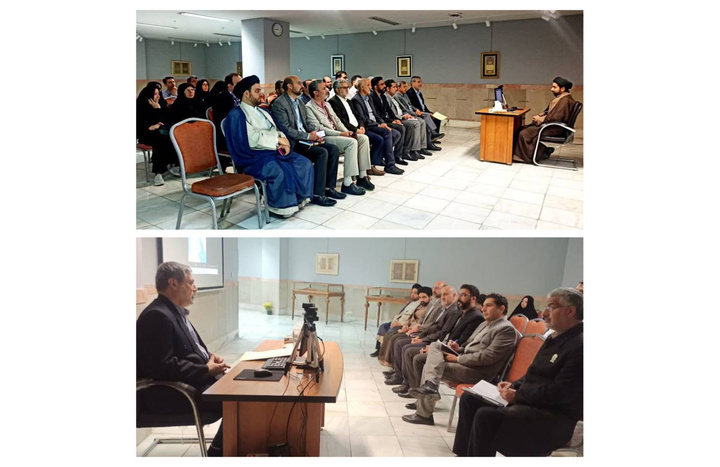The event brought together prominent scholars, including Mehdi Gheysari-Nik, Deputy for Museums and Cultural Treasures at Astan Quds Razavi (AQR), Ramazanali Eizanlou, Director of Manuscripts Section, as well as several experts and enthusiasts.
In the session, Mohammad Hossein Yazdinejad, head of the AQR’s Treasury for Stamps, Banknotes, and Coins, introduced the history of the coin collection at Astan Quds Razavi.
He explained the institution’s efforts to connect with collectors worldwide, acquiring valuable pieces and enriching its collection.
“The shrine’s numismatic collection has significantly expanded over the past two decades, and we hope to further collaborate with collectors to strengthen the museum's holdings’, he emphasized.
Elsewhere in the session, Seyyed Mohammad Taghavi, a researcher specializing in Islamic history and Quranic studies, highlighted the importance of numismatic evidence in historical research, referencing George C. Miles’ foundational work on Islamic coinage.
“Coins are historical documents, containing essential information such as minting dates, rulers, economic conditions, political affiliations, religious influences, and artistic styles’, he described.
Taghavi introduced notable Islamic-era coins, including an Umayyad dirham from 40 AH, a coin of Abdullah ibn Mu’awiya ibn Abdullah, a coin of Idris ibn Abdullah, and a coin of Ibrahim ibn Musa, brother of Imam Reza.
“Succession coins of Imam Reza, housed in the Razavi Museum’s collection, are among the most significant numismatic artifacts in Islamic history, frequently studied by researchers”, he stressed.
Taghavi further emphasized the necessity of cataloging and analyzing domestic coin collections, as they play a critical role in documenting Islamic and Shia history.
He addressed several inquiries from attendees regarding the study and identification of Islamic coins and pointed to international efforts in coin cataloging and research.
“Recognizing and documenting coin collections within Iran is of paramount importance since it contributes to a deeper understanding of Islamic history’, he stated.
The session was organized by the AQR’s Museum and Cultural Treasures Department in collaboration with the Imam Reza Research Institute and Al-Mustafa International University (AIU, Khorasan branch.
The event aimed to encourage scholars and collectors to contribute to expanding academic knowledge and preserving numismatic heritage.

On the occasion of International Museum and Cultural Heritage Day, a specialized panel discussion titled "The Role of Numismatic Studies in Islamic History with an Emphasis on Shia History" was held at the Razavi Museum Gallery.
News Code 6442

Your Comment